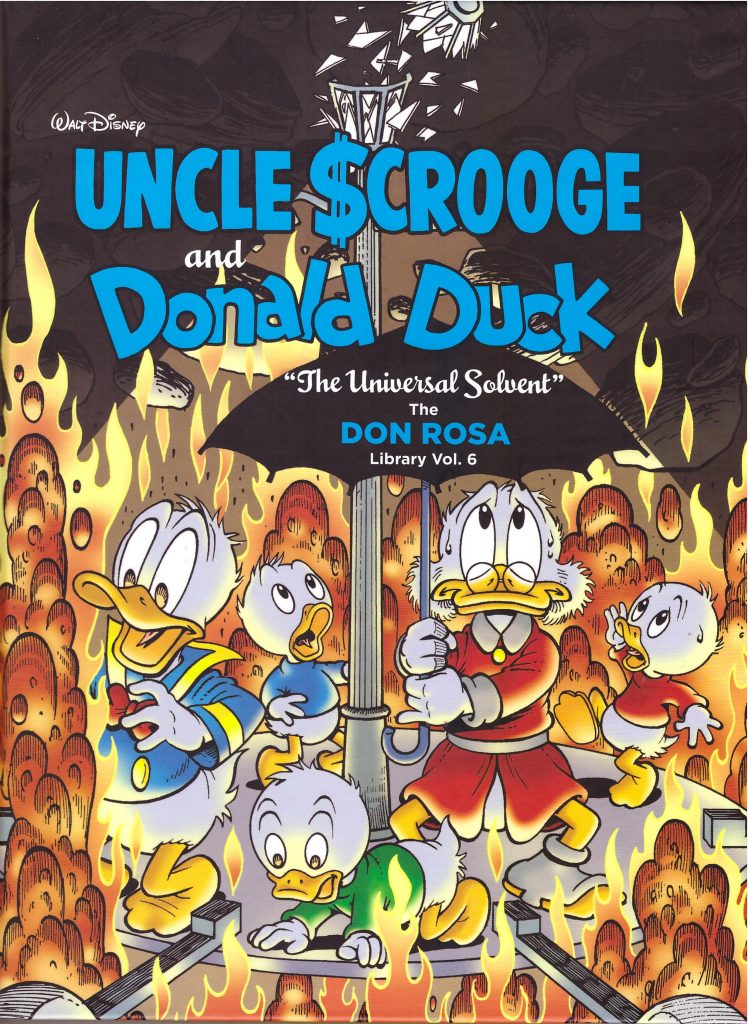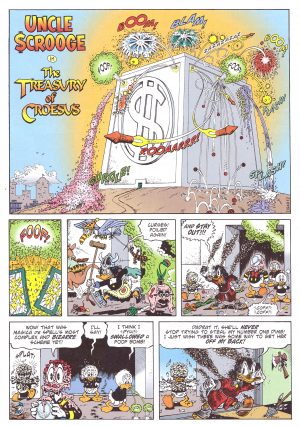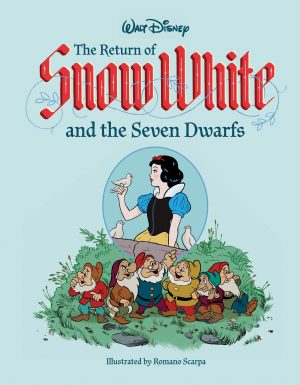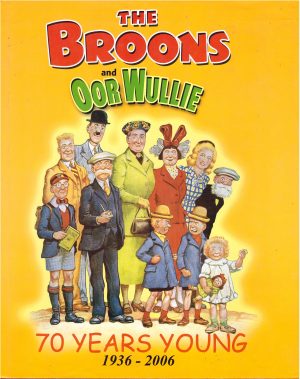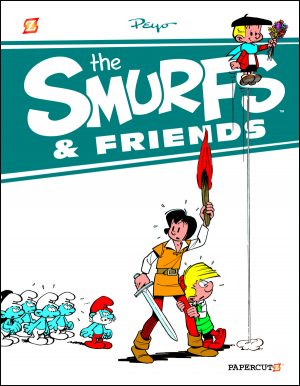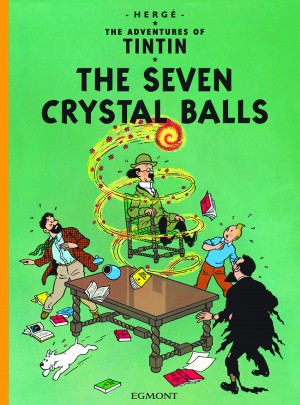Review by Frank Plowright
The bulk of the previous two collections featured the connected chapters of Don Rosa’s monumental ‘Life and Times of Scrooge McDuck’, and the final story here is the first of several additional chapters he created. Otherwise, though, this selection of material from 1994 and 1995 returns Rosa’s 1950s Duckburg with a far more prominent role for Donald Duck and his nephews.
As Rosa notes in his introduction, the films he watched on TV during his youth inspired several stories. Most obviously ‘The Duck Who Never Was’ takes its lead from It’s a Wonderful Life. The idea of Scrooge and Donald shrinking was inspired by The Incredible Shrinking Man, while another 1950s SF classic, Journey to the Centre of the Earth prompted the title story. Literature also served, with the implacable nature of Mounties in upholding the law in inhospitable locations culled from the adventure novels of Jack London, given a role in ‘Hearts of the Yukon’.
It’s the finale in which Rosa again looks back at Scrooge’s days mining in the Yukon that points the way forward, being a supplementary chapter to his ‘Life and Times of Scrooge McDuck’. It embodies the best of Rosa, being clever, funny, unpredictable and heartbreaking, the latter a quality not commonly associated with the type of material Rosa produces. It’s been established that possibly the most important decision Scrooge made in his life was choosing money over love, and this story is his last chance to find some measure of happiness with Glittering Goldie.
Both stories inspired by SF films are wonderful, with ‘The Universal Solvent’ just about having the edge due to its unpredictability and imaginative solution to problems. Scrooge has Gyro Gearloose invent the solvent with just the single containment device, and of course, it’s released and begins dissolving it’s way to the planet’s core. The solvent reappears in Escape From Forbidden Valley. Scrooge and Donald shrinking is a great gag strip, and Rosa’s picture of Duckburg without Donald Duck is a clever ten pages with the Beagle Boys enforcing the law and an unmotivated Huey, Dewey and Louie as couch potatoes. The other short, ‘An Eye For Detail’ has a few good gags about Donald’s new talent, based on his being able to distinguish Huey from Dewey from Louie, but never really goes anywhere.
‘The Lost Charts of Columbus’ is one the book’s two big adventure set pieces, with Rosa returning two villains from the much loved Carl Barks story ‘The Golden Helmet’, as the possible ownership of the USA is again cast into doubt. While very good, the chase from location to location becomes repetitive, and this isn’t the best of Rosa’s long quests, although for comparison purposes, the bonus material includes extensive roughs showing how he originally intended to complete the story. ‘The Treasury of Croesus’ is more satisfying, as it involves a puzzle, makes good use of Magica DeSpell and the drawing of the gags is wonderful. As Rosa points out in his annotations, the opening sequence (sample page) is conceived as the end to the most surreal and ludicrous attempt by Magica to steal Scrooge’s first dime. It’s brilliant.
As ever, this hardcover collection is rounded out by Rosa’s extensive notes as to his sources and homages, and the non-story illustrations he produced around the same time. Volume seven is The Treasure of the Ten Avatars.
